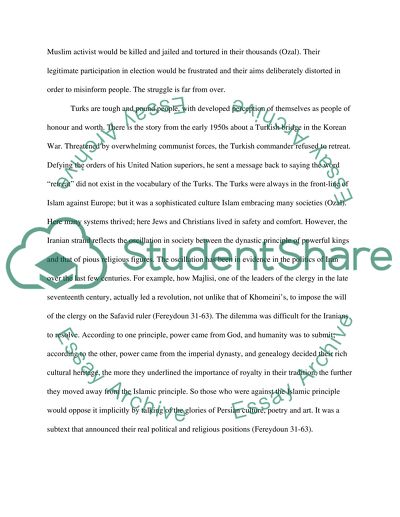Cite this document
(“Islam in Modern Turkey and in Arab World Essay Example | Topics and Well Written Essays - 2000 words”, n.d.)
Retrieved from https://studentshare.org/miscellaneous/1501241-islam-in-modern-turkey-and-in-arab-world
Retrieved from https://studentshare.org/miscellaneous/1501241-islam-in-modern-turkey-and-in-arab-world
(Islam in Modern Turkey and in Arab World Essay Example | Topics and Well Written Essays - 2000 Words)
https://studentshare.org/miscellaneous/1501241-islam-in-modern-turkey-and-in-arab-world.
https://studentshare.org/miscellaneous/1501241-islam-in-modern-turkey-and-in-arab-world.
“Islam in Modern Turkey and in Arab World Essay Example | Topics and Well Written Essays - 2000 Words”, n.d. https://studentshare.org/miscellaneous/1501241-islam-in-modern-turkey-and-in-arab-world.


